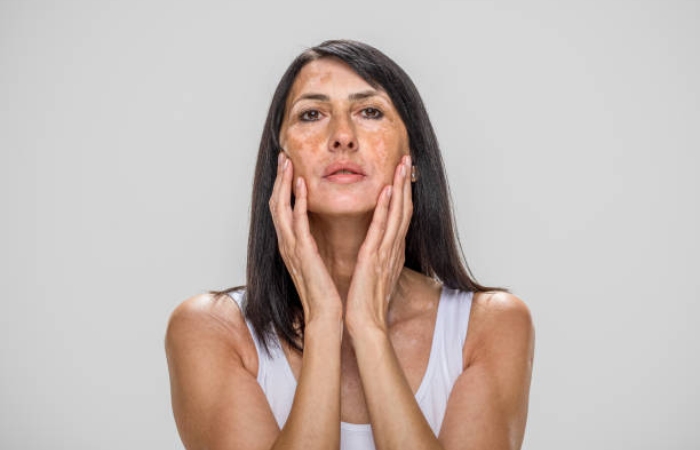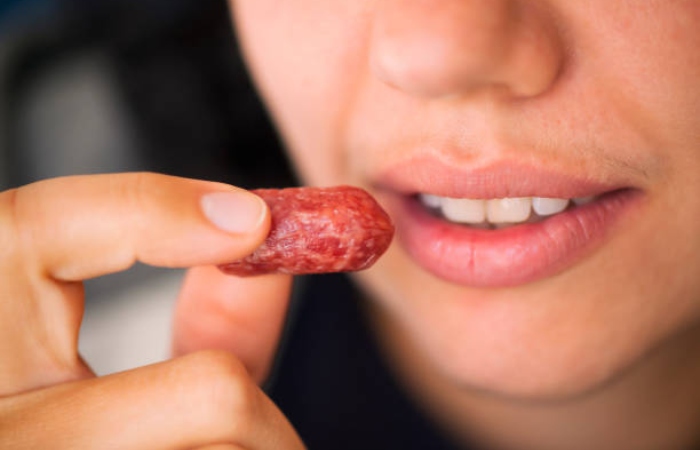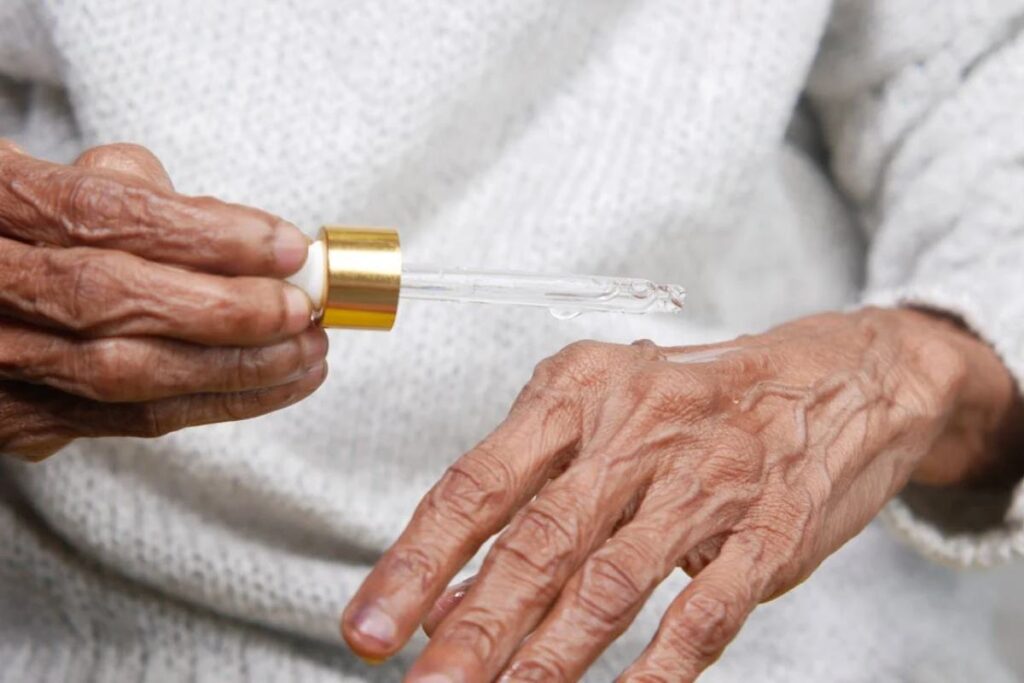If you haven’t heard of taurine in skincare yet, mark our words; you will soon skin aging. More on what it is (and what it can do) in a bit, but in short, it’s an ingredient found naturally in our bodies and used both topically and orally.
The claims behind it are impressive: from its ability to prevent moisture loss to its anti-inflammatory properties, it’s a theoretical anti-aging home run. So, are these benefits legitimate? Should you use taurine in skincare, and if so, how? We turned to Robin Gmyrek, MD, a board-certified dermatologist in New York City, to answer these questions and more.
What is Taurine skin aging?

Taurine is an amino acid, and as a prompt, amino acids are the building blocks of protein. It is found naturally in our bodies, but we also get it through food, Dr Gmirek points out, the primary sources of which are animal proteins skin aging.
Taurine is also found in our skin. Specifically, “taurine is primarily found in the epidermis, where it is involved in controlling the skin’s moisture content,” Dr. Gmyrek explains skin aging.
What can Taurine do for the skin?
As for how important it is for hydration, “taurine can help with rehydration and reduce water loss. It can also act as an antioxidant and have anti-inflammatory effects,” Dr Gmyrek says. All of these things are a huge boon when it comes to aging skin, which naturally becomes drier with age, not to mention more susceptible to inflammation and free radical damage skin aging.
It’s also worth noting that our natural levels of taurine decline as we age, he points out. Seems like a no-brainer to add this to your anti-aging skincare lineup, right? Kind of, but there’s a big caveat. “There are very few studies looking at topical taurine,” he cautions. It has been shown in vitro to help increase hydration and the production of ceramides and hyaluronic acid—two other important ingredients for healthy, youthful skin.
But there’s still not enough data to back it up, like other more proven anti-aging topics like retinoids or glycolic
acid. (Aside from the anti-aging benefits, there’s also some evidence—and discussions on Reddit—that topical taurine can help with acne skin aging.)
Oral Taurine also makes a difference.

We’re talking about topical taurine, but it’s worth mentioning that oral taurine can also benefit the skin. For example, Drs. Gmyrek notes that it has been shown to reduce wrinkle formation caused by UV radiation—
although that study was done in mice, not humans, he notes skin aging.
(And while it’s not directly intended for skincare, she notes you’re also likely to find taurine in many pre-workout and energy supplements, given that it can slow muscle fatigue.)
How to use Taurine in skincare Skin Aging
Okay, so should you consider using taurine? In short, it won’t hurt. According to Dr Gmyrek, this ingredient has
no known side effects, even when taken orally, and no ingredients don’t mix well with skin aging.
Your best bet: Look for it in formulas combined with other more effective ingredients proven to work skin aging. Dr Gmyrek urges that it will likely work especially synergistically when combined with a humectant ingredient like glycerin, given its ability to help prevent moisture loss.


